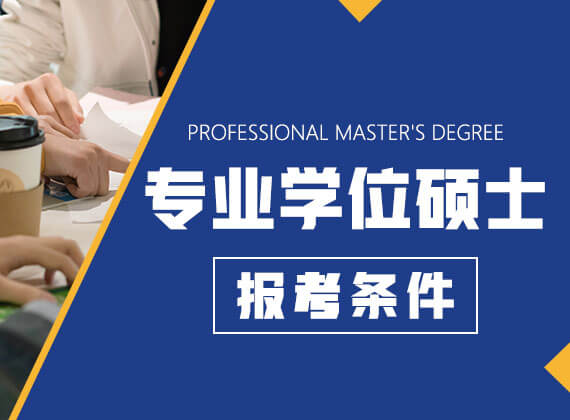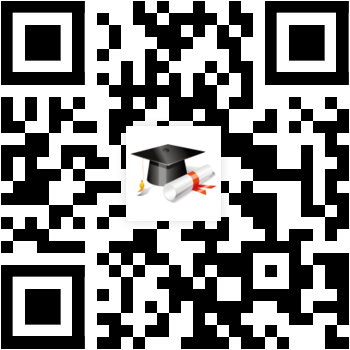2011在职硕士联考英语冲刺模拟附答案(二)
来源:在职研究生招生信息网 发布时间:2011-10-25 10:49:50
Paper One
Part I Dialogue Communication (15 minutes, 15 points)
Section A Dialogue Completion
Directions: In this section, you will read 5 short incomplete dialogues between two speakers, each followed by four choices marked A, B, C and D. Choose the answer that best suits the situation to complete the dialogue. Mark your answer on the ANSWER SHEET with a single line through the center.
1.[ A]: Oh ... um ... do you mind if I smoke?
[B]: _________
[A]: Oh, I didn't notice.
[B]: Mmm. There's a sign on the door.
A. How long for?
B. Well, yes, actually — this is a no smoking compartment.
C. I don't think I agree with you.
D. When exactly?
2. [A]: Susan, this is my boyfriend Sam.
[B]: __________
[C]: Nice to meet you, too.
A. You may only have one.
B. Yours is lovely, too.
C. Very well, thank you.
D. Oh, really? Nice to meet you.
3. [A]: Fine day, isn't it?
[B]: Well, yeah, it's beautiful.
[A]: You're looking so nice.
[B]: ___________
A. Yes, I'm extremely well, thanks.
B. It's very nice of you, and you are so beautiful.
C. Sorry to hear that.
D. Pretty good.
4. [A]: I've been on business trip abroad last month.
[B]: __________
[A]: Oh, pretty good, thanks. What about you?
[B]: Just can't complain.
A. How's everything going?
B. It's very nice of you.
C. You're kind to say so.
D. I'd love to.
5.[ A]: I have two tickets for tonight's concert. Could you go with me?
[B]: I'd like to, but I'm busy tonight.
[A]: __________
A. All my work goes for nothing. B. What a pity. I'm sorry.
C. How could I do such a silly thing? D. Is it just as what you said?
Section B Dialogue Comprehension
Directions: In this section, you will read 5 short conversations between a man and a woman. At the end of each conversation there is a question followed by four choices marked A, B, C and D. Choose the best answer to the question from the four choices given and mark your answer on the ANSWER SHEET with a single line through the center.
6. Man: Mr. Brown asked me to tell you that he's sorry, he can't come to meet you in person. He's really too busy to make the trip.
Woman: That's OK. I'm glad you've come in his place.
Question: What do we learn from the conversation?
A. The man is late for the trip because he is busy.
B. The woman is glad to meet Mr. Brown in person.
C. The man is meeting the woman on behalf of Mr. Brown.
D. The woman feels sorry that Mr. Brown is unable to come.
7. Woman: So you finally listen to your wife's advice and give up smoking.
Man: It was my doctor's advice. I'm suffering from high blood pressure.
Question: What do we learn from the conversation?
A. The man no longer smokes.
B. The man is under pressure from his wife.
C. The man usually follows his wife's advice.
D. The man refuses to listen to his doctor's advice.
8. Man: Can I borrow your maths textbook? I lost mine on the bus.
Woman: You've asked the right person. I happen to have an extra copy.
Question: What does the woman mean?
A. She can find the right person to help the man.
B. She can help the man out.
C She's also in need of a textbook.
D. She picked up the book from the bus floor.
9. Woman: You seem to pride yourself on having a lot of friends.
Man: That's for sure. Everyone would be proud of having many friends.
Woman: But it's a pity that most of them are fair-weather friends.
Man: What does that matter.? Isn't that we need all kinds of friends?
Question: What do we know about the man's friends?
A. They may not turn up in bad weather.
B. They may not be there when you need them.
C. They will come in good weather.
D. The man is on good terms with his fair-weather friends.
10. Man: The front tire is flat, and the seat needs to be raised.
Woman: Why not take it to Mr. Smith?
Question: What kind of work does Mr. Smith probably do?
A. He fixes bicycles. B. He raises sheep.
C. He sells chairs. D. He's a gardener.
Part Ⅱ Vocabulary and Structure (20 minutes, 10 points)
Directions: There are 20 incomplete sentences in this section. For each sentence there are 4 choices marked A, B, C and D. Choose the one that best completes the sentence. Mark your answer on the ANSER SHEET with a single line through the center.
11. In the course of a day, students do far more than just _________ classes.
A. attend B. attended C. to attend D. attending
12. He resented ____________ to wait. He expected the minister_____ him at once.
A. to be asked, to see B. being asked, to see
C. to be asked, seeing D. being asked, seeing
13. If the building project ____________ by the end of this month is delayed, the construction company will be fined.
A. being completed B. is completed
C. to be completed D. completed
14. This is one of the questions ___________ at the meeting next week.
A. discussed B. discussing
C. to be discussed D. being discussed
15. ___________, a man who expresses himself effectively is sure to succeed more rapidly than a man whose command of language is poor.
A. Other things being equal B. Were other things equal
C. To be equal to other things D. Other things to be equal
16. They are going to have the serviceman ___________ an electric fan in the office tomorrow.
A. install B. to install
C. to be installed D. installed
17. Since both he and I work in the same hospital, I can hardly avoid _________ him.
A. being met B. meeting C. to be met D. to meet
18. The indoor swimming pool seems to be a great deal more luxurious than _____________.
A. is necessary B. being necessary
C. to be necessary D. it is necessary
19. What a lovely party! It's worth ___________ all my life.
A. remembering B. to remember
C. to be remembered D. being remembered
20. Contrast may make something appear more beautiful than it is when ___________ alone.
A. seen B. is seen
C. to be seen D. having been seen
21. He ____________ his old car for a new one as soon as he had won the prize.
A. replaced B. converted C. exchanged D. interchanged
22. He is a very _______________ character; he is never relaxed with strangers.
A. serf-confident B. self-conscious C. self-evident D. self-serving
23. You'll find that the community has _____________ great changes since you were here last time.
A. submitted B. sustained C. perceived D. undergone
24. You don't have to ___________ yourself. I think you did the right thing putting your mother in a nursing home.
A. justify B. hinder C. indulge D. appoint
25. If prisoners behave well they are allowed the ___________ of visiting their families at the weekend.
A. equality B. security C. privilege D. prestige
26. Despite his ____________ as a trouble-maker, he was promoted to department manger.
A. repetition B. repression C. reputation D. representation
27. It was obvious that she and her husband were ____________ and she wished she'd never married him.
A. insolvable B. insensible C. inseparable D. incompatible
28. The new law allows you to _____________ payment if you think a bill is incorrect.
A. withhold B. withdraw C. wither D. withstand
29. It was a real ___________ when Susan came back from her vacation and told us she had married a local waiter.
A. comfort B. shock C. attack D. impact
30. To celebrate the National Day, there was a ___________ fireworks display.
A. specific B. spectacular C. speculative D. specialistic
Part Ⅲ Reading Comprehension (40 minutes, 40 points)
Directions: There are 4 passages in this part. Each of the passage is followed by 5 questions or unfinished statements. For each of them there are 4 choices marked A, B, C and D. Choose the best one and mark your answer on the ANSWER SHEET with a single line through the center.
Passage One
He is a rare celebrity scientist. He's even had a TV cameo role (小角色) in Star Trek in which he plays poker with scientific icons (偶像) Sir Isaac Newton and Albert Einstein. Yet when asked about comparisons between himself and the two scientists, he calls it all "media hype (炒作)" Once asked how he felt about being labeled the world's smartest person, he responded: "It is very embarrassing. It is rubbish, just media hype. They just want a hero, and I fill the role model of a disabled genius. At least I am disabled, but I am no genius."
Hawking has ALS or Lou Gehrig's disease, a neuromuscular disease that progressively weakens muscle control. He gets around in a wheelchair, and after completely losing the use of his vocal chords in an operation to assist his breathing in 1985, he communicates through a computer. A speech synthesizer "speaks" for him after he punches in what he wants to say, selecting words in the computer software by pressing a switch with his hand. Unfortunately, it makes him sound like he has an American accent, he says.
Despite his humorous, self-effacing manner, Hawking is one of the world's leading theoretical physicists. Many consider him to be the most brilliant since Einstein. Since 1979, he's held the post of Lucasian professor of mathematics at Cambridge University — which was once held by Isaac Newton no less — and has twelve honorary degrees. He's also a best-selling author. His book, A Brief History of Time, has been translated into 33 languages and has sold nine million copies.
For much of his academic life, Hawking has been among a group of theoretical physicists searching for a "theory of everything" — one unified scientific theory that explains the big cosmological questions like How did the universe begin? Why is the universe the way it is? and How will it end?
You are probably familiar with the existing theories, such as the Big Bang theory. However, these theories are inconsistent with each other. So Hawking — among a group of theoretical physicists---has been on a quest to come up with a theory of quantum (量子) gravity that would incorporate these theories---the theory of everything (TOE) — which would solve the problem of what caused the universe to start expanding.
How successful have the world's leading cosmologists been? Hawking predicts we'll have the TOE in the next 20 years.
31. From the first paragraph we can see that Hawking ______________.
A. is a very famous scientist
B. can be compared with Newton and Einstein
C. is a very good actor
D. has surpassed any scientists known in the world
32. In this passage, Hawking appears to be ____________.
A. silent and hard working B. humorous, modest and industrious
C. confident and proud D. diffident and shy
33. Why does Hawking communicate with others through a computer?
A. He is too weak to speak.
B. He is a computer addict.
C. An operation to help his breathing made him unable to pronounce.
D. His illness makes him unable to speak.
34. The leading theoretical physicists are searching for a "theory of everything" because ____________.
A. the existing theories are out of date
B. the theories are not enough
C. some of the theories are wrong
D. the existing theories are somewhat contradictory to each other
35. Hawking and his colleagues are working hard to try to find ____________.
A. a new theory to replace the Big Bang theory
B. a new theory to replace Einstein's general theory of relativity
C. a theory that can incorporate the existing theories
D. an all-powerful theory that can explain everything in the world
Passage Two
I have an infatuation (迷恋) with autumn. The colors of the season and the smells, have always thrilled me. I have always found joy in this time of year. The last few autumns of my life, however, I recollect in shades of gray rather than cheerful oranges and yellows.
When I became a single mother, every aspect of life took on new meaning. Since I was used to carrying out most of the parental duties without much help during my marriage, I truly did not foresee how different parenting would become after the marriage was over. But suddenly I realized I was a statistic. The daily routine was not changed so much; it was the angle at which I had begun to look at life.
I believed my ex-husband's lawyer was tracking every grade the children made, and I was under a microscope in this new town where the children and I moved our "broken home." I feared having to eventually establish my family with each new teacher and each new term as a single-parent family. I just wanted to be us again, without the stigma (耻辱) of the label put on us.
During those few gray years, I would reassure myself that soon things would be better, and that I would someday be able to feel whole again. There is no mathematical equation of adults proportioned to children to equal a stable, loving family. Every family has its strengths. In fact, studies show that in families who read together, eat together and communicate openly, children are likely to succeed academically, as well as socially and emotionally. I am sure these habits are just as effective when practiced in single-parent families. I realize now that I am not a statistic. We are an active, vital family in this charming community, where we are not marked by any stigma of any statistics of any focus groups.
We are given opportunity, all of us. We are surrounded by beauty and immersed in possibility. There is joy to be found here, in what we see around us and in creating our own rendition of how we want to be seen. There is strength and grace in our own willingness to break free from conformity without falling behind the barriers of self-imposed limitations or preconceived notions of where we should fit in this world according to research.
36. What does the last sentence of paragraph one imply?
A. The author moved to a new place.
B. The climate changed greatly in the last few years.
C. In the last few years, the author's mood changed.
D. There were some natural disasters.
37. After the divorce, ___________.
A. there wasn't any change, since she used to play a main part in taking care of the children
B. she became interested in statistics
C. everything in her life was changed
D. it was the way by which she looked at life that changed
38. According to the passage, ______________ brought the unpleasant change in her life.
A. a kind of discrimination against single-parent families
B. her ex-husband
C. social scientists
D. the feeling about autumn
39. In the few gray years, the author __________.
A. felt helpless and sad
B. had the help from her friends
C. never lost hope, and believed that everything would change someday
D. became very nervous and silent
40. What is the author's main point?
A. Every family has its happiness and unhappiness.
B. Her family has suffered a lot.
C. Her ex-husband is not a good man.
D. Every family has its strength and can create its happiness.
Passage Three
Ultralight (超轻型的) airplanes are a recent development in aviation that provide what aviation enthusiasts have long been seeking: born of the marriage of the hang glider and the go-kart (轻型单座赛车) engine around 1974, when John Moody mounted a 12-horsepower go-kart engine on his Icarus II hang glider.
Today's ultralights are not just hang gliders with engines; they are "air recreation vehicles." Modem ultralight planes use snowmobile engines that let them cruise at about 40 miles per hour, climb at about 400 feet per minute, and carry combined payloads of pilot and fuel up to about 200 pounds, which is about equal to an ultralight plane's weight when empty. More than ten thousand ultralight planes were sold last year at prices ranging from $2,800 to $7,000. But the main reason for the increasing popularity of these aircraft is not that they are inexpensive, but that they are fun to fly.
The modem ultralight plane would look very familiar to the earliest pioneers of aviation. Otto Lilienthal made more than 2,000 flights in Germany in the 1890's in what were actually hang gliders. Octave Chanute designed and built many early hang gliders. Augustus Herring, Chanute's assistant, used these gliders as models for a glider that he built for himself. On this glider, Herring installed a compressed-air motor and flew 267 feet in 1898. The Wright brothers' flyer was the grandfather of today's ultralight planes. The pilot sat right out in the open, just as in modem ultralights, and used controls that were much the same as those used in today's machines. Though most ultralight planes are used for pleasure flying, some are also used for crop dusting, aerial photography and even military observation service. The likelihood is that further uses will be found for ultralight planes, but their greatest use will continue to be as air recreational vehicles.
41. The author seems to feel that ultralight airplanes are _____________.
A. a toy for the rich
B. nothing but hang gliders
C. a new development that meets the needs of aviation enthusiasts
D. the most important development in aviation since the Wright brothers' flyer
42. The author compares John Moody's use of a go-kart engine on a hang glider to ___________.
A. a marriage B. the flight of Icarus
C. cruising in a snowmobile D. soaring and gliding from a high altitude
43. Which of the following statements is an opinion?
A. Ultralight planes use snowmobile engines that let them cruise at about 40 miles per hour.
B. John Moody used a 12-horsepower engine to power his Icarus II hang glider.
C. The use of ultralight planes will increase in such areas as crop dusting and aerial photography.
D. Otto Lilienthal made more than 2,000 flights in Germany in the 1890's in what were actually hang gliders.
44. The author finds great similarity between
A. the weight of the hang glider and that of the ultralight airplane
B. ultralight airplanes and military aircraft
C. the inventiveness of John Moody and that of Octave Chanute
D. the controls used in the Wright brothers' flyer and those used in today's ultralight air-planes
45. The theme of this passage is about
A. the flying snowmobile
B. the history of recent aviation
C. how the ultralight plane flies
D. the ultralight plane — a recent development
Passage Four
Friction between America's military and its civilian overseers is nothing new. America's 220-year experiment in civilian control of the military is a recipe for friction. The nation's history has seen a series of shifts in decision-making power among the White House, the civilian secretaries and the uniformed elite (精英). However, what may seem on the outside an unstable and special system of power sharing has, without a doubt, been a key to two centuries of military success.
In the infighting dates to the revolution, George Washington waged a continual struggle not just for money, but to control the actual battle plan. The framers of the Constitution sought to clarify things by making the president the "commander in chief." Not since Washington wore his uniform and led the troops across the Alleghenies to quell(镇压)the Whiskey Rebellion has a sit-ting president taken command in the field. Yet the absolute authority of the president ensures his direct command. The president was boss, and everyone in uniform knew it.
In the Civil War, Abraham Lincoln dealt directly with his generals, and Secretary of War Edwin M. Stanton handled administrative details. Lincoln, inexperienced in military matters, initially deferred (顺从) to his generals. But when their caution proved disastrous, be issued his General War Order No. 1 — explicitly commanding a general advance of all Union forces. Some generals, George B. McClellan in particular, bridled at his hands-on direction. But in constitutional terms, Lincoln was in the right.
His most important decision was to put Ulysses S. Grant in charge of the Union Army in 1864. Left to its own timetable, the military establishment would never have touched Grant. The relationship between the president and his general provides a textbook lesson in civilian control and power sharing. Grant was a general who would take the fight to the enemy, and not second-guess the president's political decisions. Unlike McClellan, for example, Grant cooperated wholeheartedly in recruiting black soldiers. For his part, Lincoln did not meddle in operations and did not visit the headquarters in the field unless invited.
The balance set up by Grant and Lincoln stayed more or less in place through World War I. Not until World War II did the pendulum finally swing back toward the White House. Franklin Roosevelt, who had been assistant Navy secretary, during World War I, was as well prepared to be commander in chief as any wartime president since George Washington.
46. According to the author, the system of power sharing between the White House and the generals _____________.
A. is unstable and strange
B. is a guarantee for American military success
C. has caused a series of quarrels
D. undermines the bases of American military power
47. The phrase "the uniformed elite" in paragraph one most probably refers to ___________.
A. outstanding soldiers B. officers
C. officials D. generals
48. According to the passage, Washington ___________.
A. struggled with the congress only for money
B. lived up to the code of the constitution that the president was "the commander in chief"
C. looked more like a general than a president
D. did much more than he should as a president
49. Why was the putting of Grant in charge of the Union Army an important decision?
A. Because Lincoln was inexperienced in military affairs, he had to do so.
B. Grant whole-heartedly believed in Lincoln, and their cooperation proved to be a none-such.
C. All things considered, Grant was somewhat better than McClellan.
D. The decision to put Grant in charge of the Union Army was not against the constitution.
50. In the last paragraph, the author implies that __________.
A. Roosevelt was better prepared to be a wartime president than Lincoln
B. in the Second World War, the relationship between the White House and the generals was intense
C. both Lincoln and Roosevelt were good wartime presidents, although their actual way of dealing things might be different
D. George Washington was actually the best president
Part Ⅳ Cloze Test (15 minutes, 10 points)
Directions: There are 10 blanks in the following passage. For each numbered blank, there are 4 choices marked A, B, C and D. Choose the best one and mark your answer on the ANSWER SHEET with a single line through the center.
For most kinds of activities, a large group of people can accomplish more and have more fun than one person alone. For example, politicians, businessmen, workers, and 51 criminals know that they must join organizations in order to be 52 . Since there is usually strength in numbers, labor unions have a more 53 influence on wages and company policy than individual workers 54 . A person may also belong to social clubs and athletic teams 55 he or she can meet other people who are interested in the same activities. 56 you have a hobby, such as playing chess, collecting coins or stamps, or playing a musical instrument, you should join a club which has 57 meetings to talk about your activity; the other 58 will help you learn more about it. Of course, a group must be well 59 , or it might be a failure. All the members should work together on projects and choose good leaders to 60 their activities. In this way, the organization will benefit everyone in it.
51. A. still B. even C. somehow D. however
52. A. sociable B. interested C. successful D. extrovert
53. A. powerful B. strong C. great D. forcing
54. A. can B. think C. do D. gain
55. A. what B. at which C. where D. in which
56. A. Whether B. When C. If D. Although
57. A. regular B. often C. usual D. incidental
58. A. clubs B. people C. members D. societies
59. A. organized B. set C. arranged D. gathered
60. A. introduce B. show C. direct D. explain
Paper Two
Part V Translation (30 minutes, 10 points)
Directions: Translate the following passage into Chinese and put your translation on the ANSWER SHEET.
Internet is a vast network of computers that connects many of the world's businesses, institutions and individuals. The internet, which means interconnected network of networks, links tens of thousands of smaller computer networks. These networks transmit huge amounts of information in forms of words, images and sounds.
The Internet was information on virtually every topic. Network users can search through sources ranging from vast databases to small electronic "bulletin boards", where users form discussion groups around common interests. Much of the Internet's traffic consists of messages sent from one computer user to another. These messages are called electronic mail or e-mail. Internet users have electronic addresses that allow them to send and receive e-mails. Other uses of the network include obtaining news, joining electronic debates and playing electronic games.
Part VI Writing (30 minutes, 15 points)
Direction: Write a composition of about 120 words on the following topic. Your composition should be written on ANSWER SHEET.
Topic: The Values of Failure
参考答案
题号 1 2 3 4 5 6 7 8 9 10 11 12 13 14 15 16 17 18 19 20
答案 B D A A B C A B B A A B C C A A B A A A
题号 21 22 23 24 25 26 27 28 29 30 31 32 33 34 35 36 37 38 39 40
答案 A B D A C C D A B B A B C D C C D A C D
题号 41 42 43 44 45 46 47 48 49 50 51 52 53 54 55 56 57 58 59 60
答案 C A C D D B D B B C B C A C C C A C A C
Translation:
互联网是一个巨大的计算机网络,它把世界上许多公司、机构团体和个人连接起来。互联网,即网络相互连接形式的网络,连接了数以万计的更小的计算机网络。这些网络以文字、图像和声音的形式传输大量的信息。
事实上,互联网上几乎有关于所有主题的信息。从大型数据库一直到小型的电子版公告板,都可以成为互联网用户搜索信息的来源,网民们经常在电子公告板上围绕着某个共同兴趣形成讨论小组。互联网上大量的通讯由从一台计算机送往另一台计算机的消息组成。这些消息被称为电子邮件。互联网用户有用来收发电子邮件的电子邮件地址。此外,网络功能还包括获取新闻、参与网上辩论、玩电子游戏等。
Writing:
The Values of Failure
In our lifetime, we can never be plain sailing. Life must be full of difficulties and setbacks. When we are facing with such a disappointing matter, don't get frustrated. If we draw lessons from failures, in most cases we will achieve success in the future.
Beethoven is a good example when facing failures. His success in creating Symphony Nine was on the basis of several times of failing attempt. It's failure that reanimated his determination to succeed. The failure that gave him a lesson benefited him greatly, even in his whole life. Contrary to Beethoven, some people think failure is a heavy blow that they are not able to endure because they lose chances to achieve something. When they meet failure, they will be seriously dejected and can never pluck up their courage to try again.
Let’s remember an old saying “failure is the mother of success”. When we see failure, we should believe that success is not far ahead. If we hold a positive attitude towards failure, we will overcome difficulties and frustrations to win victory.






















